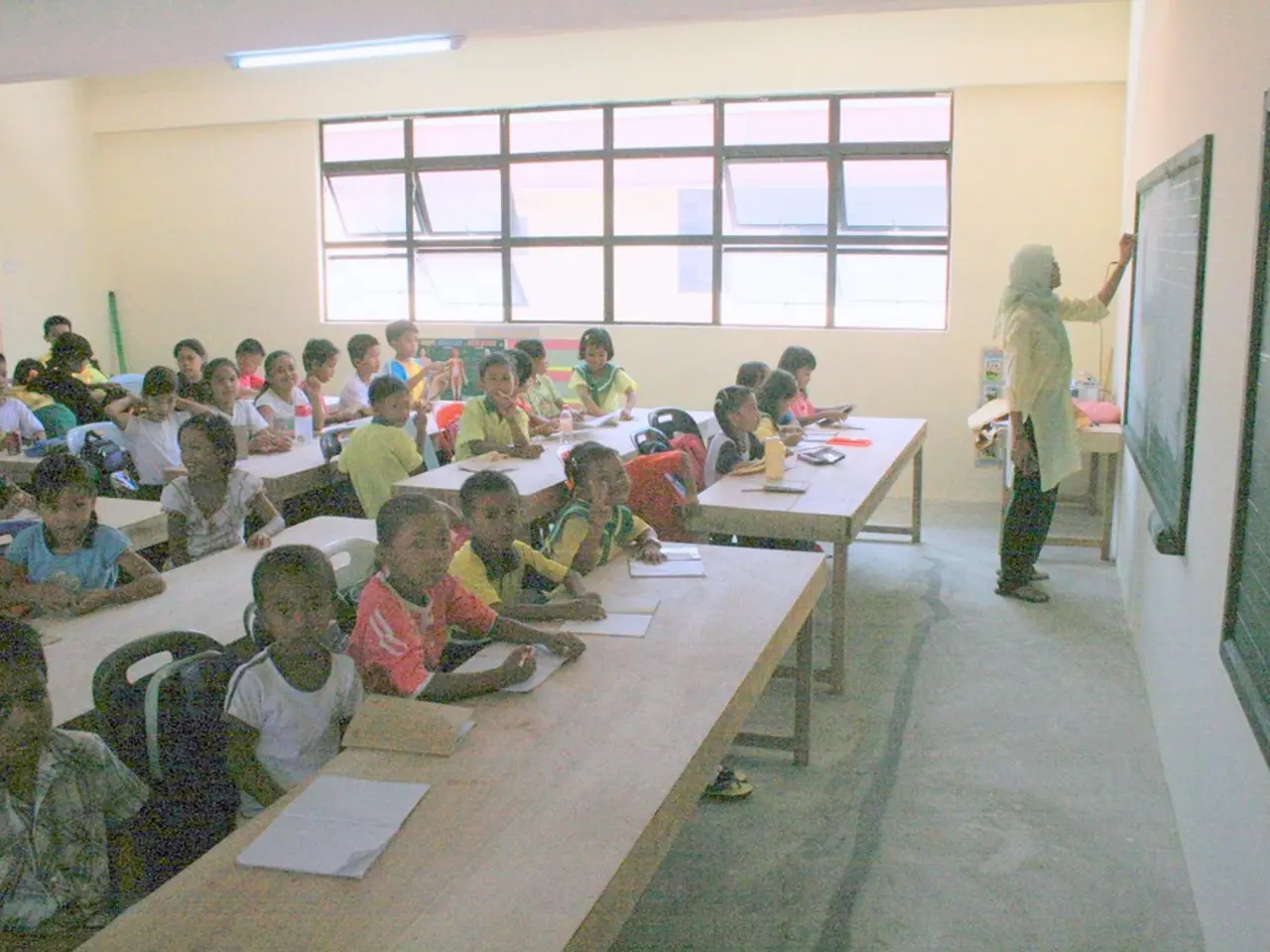Pupils Advocate for Enhanced Instruction in Financial Literacy
**Financial Education Gains Momentum in UK Schools**
Financial education, while a component of the UK National Curriculum since 2014, is gaining increased attention as a crucial life skill for children. Currently, it is integrated into subjects such as Personal, Social, and Health Education (PSHE), Citizenship, and Mathematics at the secondary level. However, there is a growing call for its inclusion in primary school education as well.
According to a survey, 84% of school-age children consider financial education as equally or more important than maths, English, and science. This sentiment is echoed by Eashan Brown, a 14-year-old student, who expressed the need for more comprehensive financial education in the school curriculum.
Despite its presence in the curriculum, concerns have been raised about the adequacy of financial education. One of the main issues is limited coverage, with financial education not being mandatory in primary schools, leading to concerns that many children lack foundational knowledge about money management from an early age.
Another concern is variable implementation, with the quality and depth of financial education often varying significantly between schools. There is a need for more consistency and comprehensiveness in the teaching of financial literacy.
Additionally, there is a call for more practical, hands-on learning experiences that can help children develop tangible skills in managing finances, making informed financial decisions, and understanding the value of money.
Socioeconomic factors also play a role, with children from different backgrounds receiving varying levels of financial education at home. Formal education should help bridge this gap and provide equal opportunities for all.
Advocates, including organizations like GoHenry and Members of Parliament, are pushing for financial education to be compulsory from primary school age. Programs like "Words that Count" aim to enhance financial literacy among young people, particularly those at risk of exclusion from mainstream education.
Louise Hill, founder of GoHenry, has been a vocal advocate for making financial education compulsory from primary school level. She stated that over 60% of kids leave school without remembering any financial education, highlighting the need for change.
Eashan's school provided only one day of financial education, focusing on budgeting, saving, and spending. However, Eashan mentioned that some children at his school have lost money trading cryptocurrency, underscoring the importance of comprehensive financial education.
The Government is currently reviewing the existing curriculum, with recommendations set to be published later this year. It remains to be seen whether financial education will be made compulsory from primary school level and how it will be integrated into the curriculum.
In conclusion, financial education is gaining momentum in the UK, with children, parents, and educators recognizing its importance as a life skill. As the Government reviews the curriculum, it is hoped that comprehensive and consistent financial education will become a standard part of every child's education.
- To address the limited coverage and inconsistent implementation of financial education, there is a need for a more comprehensive and mandatory financial education curriculum for primary schools.
- As attention to personal finance continues to grow, practical learning experiences that help children manage finances, make informed decisions, and understand the value of money are being called for.
- Following the increasing importance placed on financial education, discussions around the inclusion of cryptocurrency within the personal finance section of the curriculum have started.
- Acknowledging the various socioeconomic factors that influence children's understanding of personal finance, the goal is for formal education to provide equal opportunities for all by bridging the gap in financial knowledge at different economic levels.
- As children from different backgrounds may receive varying levels of financial education at home, there is a push for programs like "Words that Count" aimed at enhancing financial literacy among children who may be at risk of exclusion from mainstream financial education.




